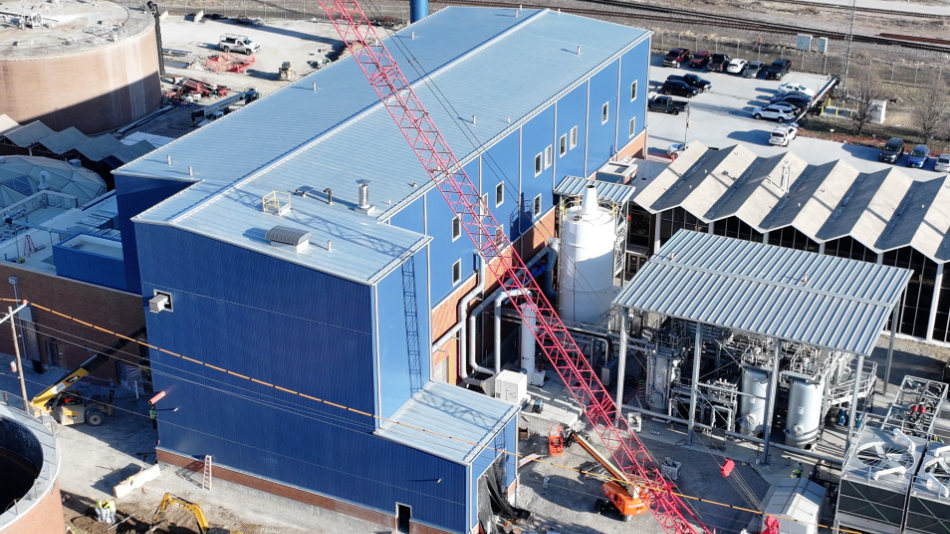KC Water is launching the next phase of its Blue River Biosolids Facility upgrade, with system testing set to begin early April 2025. This milestone positions Kansas City as a national leader in sustainable wastewater management.
The upgraded facility, located at 7300 Hawthorne Road near I-435 and Front Street, will be the first in the Midwest to implement a biosolids treatment system using a thermal hydrolysis process (THP). This is an innovative technology that converts wastewater solids into Class A biosolids and biogas, reducing environmental impact while generating valuable resources.
“The Blue River Biosolids Facility upgrade represents Kansas City’s bold vision for innovation and environmental leadership,” said Mayor Quinton Lucas. “By transforming what others see as waste into valuable community resources, we are protecting public health, preserving our natural environment, and building a more sustainable, cost-effective infrastructure that will serve Kansas City families for generations to come.”
The Blue River Biosolids Facility upgrade will optimize existing infrastructure while modernizing Kansas City’s approach to wastewater management. This initiative aligns with KC Water’s vision to enhance community sustainability and quality of life while lowering long-term costs for ratepayers.
Key Milestones and Timeline
- Testing Begins: KC Water will begin system tests early April 2025 to check out and ensure operational objectives.
- Operational Before Q4: The plant is expected to become operational in stages in Q4, with biosolids and biogas production commencing shortly after.
- Class A Certification by Q4 2026: Full certification as a Class A biosolids facility is projected in 2026. Note: To achieve this milestone, KC Water must first convert the remaining Class B solids in the system to Class A – a process that is deliberate and takes a definitive period of time to accomplish.
A Sustainable and Cost-Effective Solution
The thermal hydrolysis process (THP) introduces a two-step “pressure cooker” system that prepares sludge for efficient anaerobic digestion, producing clean, safe byproducts. This benefits Kansas City in the following ways:
- Environmental Impact Reduces reliance on incinerators and landfill disposal.
- Class A Biosolids Provides a safe, nutrient-rich fertilizer for farms and gardens.
- Biogas Generation Produces renewable energy that can power the plant or be supplied to the natural gas grid for reuse.
- Cost Savings Enabled KC Water to put the rehabilitation funding ($60 million) needed for the 1960’s systems including incinerators toward a project and process that will service the metro area for decades.
How the Thermal Hydrolysis Process Works
- Pressure Treatment: Waste solids are treated under high heat (329°F) and pressure.
- Anaerobic Digestion: Treated solids are combined with bacteria and other microorganisms. This natural process in turn produces biogas and biosolids by converting sewage solids into a condensed biosolids product.
- Final Products: Biosolids can be used as a fertilizer and soil conditioner safely and biogas is used to generate reusable energy and protect air quality.

